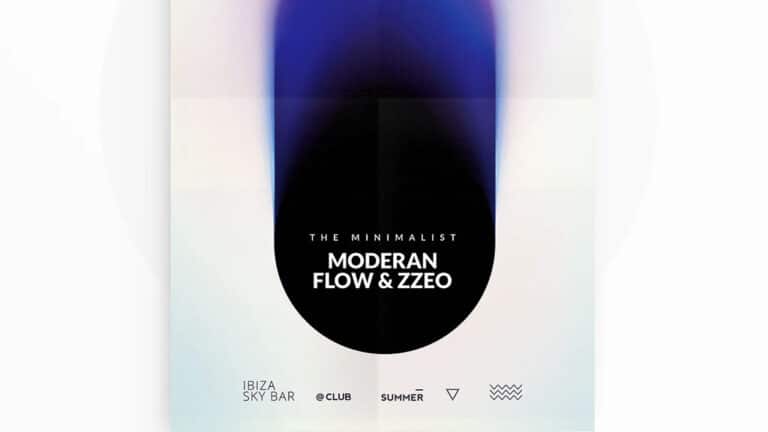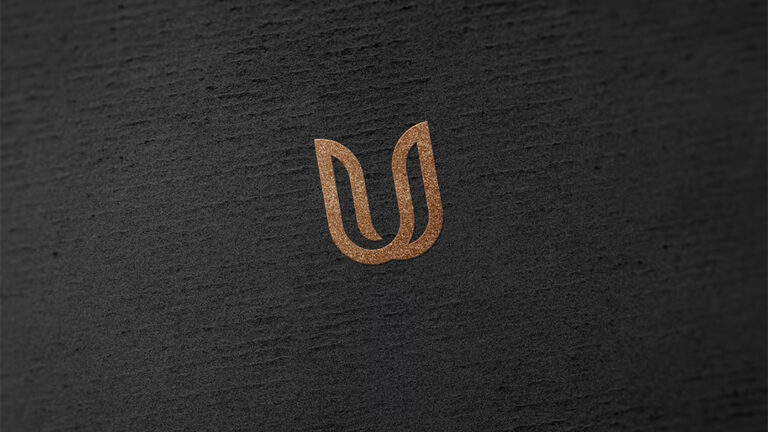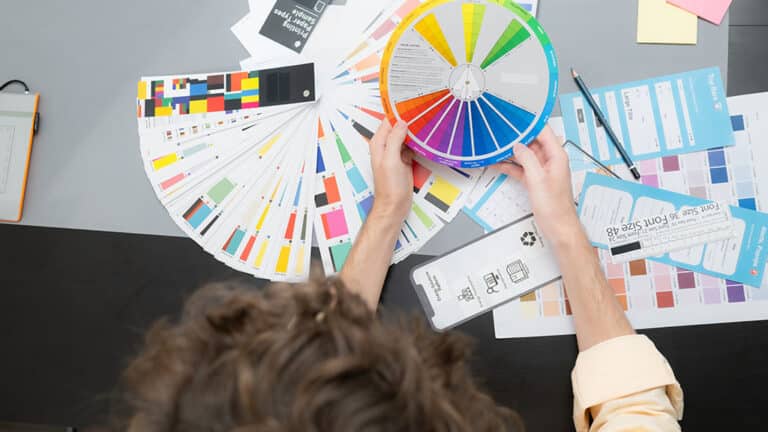How to Choose the Right Graphic Design Agency for Your Business
Choosing a graphic design agency is more than just finding someone who can make things look good—it’s about finding a creative partner who understands your business, your audience, and your goals. The right agency can elevate your brand, enhance your messaging, and drive real results through strategic visuals. On the other hand, the wrong choice can lead to frustration, wasted time, and missed opportunities.
In today’s competitive landscape, your visual identity is often the first thing potential customers interact with. Whether it’s your website, social media content, packaging, or marketing materials, how your brand looks plays a huge role in how it’s perceived. That’s why selecting the right design agency is such a critical decision for any business.
This guide will walk you through the key things to consider before making your choice. From evaluating portfolios to understanding how an agency works behind the scenes, these tips will help you make an informed decision that supports your brand’s growth and ensures your investment pays off. And if you’re seeking strategic, high-quality design that aligns with your vision, working with a team that offers custom graphic design services can help you stand out in all the right ways.
Know Your Business Goals and Design Needs
Before you even begin researching agencies, it’s important to get clear on what you actually need. Are you looking for a complete brand overhaul? A logo refresh? Marketing collateral? A website redesign? The more specific you can be about your goals, the easier it will be to find an agency that specializes in those areas.
Take time to outline your objectives and the problems you’re trying to solve. For example, if your current visuals feel outdated and aren’t connecting with your target audience, you might need an agency that offers brand strategy along with design execution. If you’re launching a new product, you may need packaging design, point-of-sale graphics, or digital ads to support your campaign.
Consider your long-term needs as well. Are you looking for a one-time project or an ongoing creative partner? Do you need an agency that can scale with you as your business grows? Understanding this from the outset will help narrow down your options and avoid misalignment down the road.
Once you’ve clarified your needs, create a short list of the specific deliverables you’re looking for. This will make it easier to compare proposals, estimate timelines, and ensure everyone is on the same page from day one.
Look for Relevant Industry Experience
Not all design agencies are created equal, and experience within your industry can be a major advantage. An agency that has worked with businesses similar to yours will likely have a better understanding of your audience, the competitive landscape, and the types of visuals that drive results in your space.
For example, if you run a wellness brand, an agency with experience in health and lifestyle design will be more familiar with the visual cues, language, and expectations your audience responds to. If you’re in B2B tech, an agency that’s designed for SaaS platforms or digital products will better understand how to communicate complex ideas in a clean, accessible way.
That doesn’t mean you should rule out agencies without niche experience, but it’s worth asking about relevant projects and how they approached them. Look for case studies or portfolio examples that show an understanding of your market and challenges. Pay attention not just to the aesthetics, but also to the thinking behind the design—how they solved problems, improved user experience, or contributed to measurable outcomes.
Industry experience can also help speed up the onboarding process. You won’t have to spend as much time explaining your audience or educating the agency on your space—they’ll be able to jump in with confidence and deliver results faster.
Review Their Portfolio for Style and Versatility
A design agency’s portfolio is one of the most telling indicators of what they can offer. It not only showcases the quality of their work but also reveals their range, creativity, and ability to tailor their designs to different industries and audiences. As you explore potential agencies, don’t just focus on whether their designs look good—ask yourself whether their work aligns with the visual identity you want for your business.
Look for variety. Do they have experience working across different media—such as digital ads, websites, packaging, and social graphics? Can they switch between different styles depending on the client, or do all of their designs look the same? A versatile portfolio shows the agency knows how to adapt their creative approach based on business needs, not just aesthetic preferences.
You’ll also want to see evidence of storytelling and strategy in the designs. A great layout or logo is more than just visually pleasing—it should communicate something specific about the brand it represents. Try to find examples where the agency helped solve a business problem through design, like boosting engagement on social media, improving user flow on a website, or visually rebranding a company.
If their portfolio includes case studies, take time to read them. These often provide background on the project goals, process, and results, offering insight into how the agency approaches collaboration, strategy, and execution. The more transparent and detailed they are about their work, the more confident you can feel in their ability to deliver for your brand.
Evaluate Their Strategic Thinking, Not Just Aesthetics
Strong design doesn’t start with software—it starts with thinking. While visual talent is essential, the best design agencies also bring a strategic mindset to the table. This means they take time to understand your audience, your messaging, and the goals behind each project before jumping into the creative phase.
When speaking with potential agencies, ask how they approach the discovery and planning stages. Do they offer brand workshops or creative briefs to clarify direction? Do they ask thoughtful questions about your competitors, customers, and brand voice? Are they focused on problem-solving or just producing deliverables?
An agency with strong strategic thinking will approach your project like a business challenge, not just a design task. They’ll want to understand your key performance indicators, help shape your messaging hierarchy, and guide decisions based on user behavior and psychology—not just trends.
You should also ask how they measure success. Do they help you track metrics related to conversion rates, engagement, or brand awareness? Even if their role is creative, a results-oriented agency will care about the outcomes of their work, not just how it looks.
Design that works combines beauty and purpose. A strategic partner will ensure both are part of the final product.
Check Client Reviews and Testimonials
What past clients say about a design agency often speaks louder than the agency itself. Testimonials, reviews, and client case studies can give you a clear picture of how the agency operates—not just creatively, but professionally. This includes things like communication, punctuality, collaboration style, and responsiveness to feedback.
Start by browsing their website for client feedback. Reputable agencies will usually feature testimonials prominently, and some will even include detailed case studies or video interviews with clients. These are especially helpful because they often explain the business challenges, how the agency approached the project, and what results were achieved.
Beyond their site, check third-party platforms like Google Reviews, Clutch, or LinkedIn. These reviews are less curated and can give a more candid view of the agency’s strengths and weaknesses. If you see recurring themes—positive or negative—they’re worth noting.
If possible, ask for references. Speaking directly with a past client can give you an unfiltered perspective on what it’s like to work with the agency, what the process was like, and whether the results lived up to expectations.
Client reviews aren’t just about credibility—they’re about compatibility. The right agency for your business isn’t just talented, they’re dependable and easy to work with, too.
Assess Communication and Collaboration Style
A graphic design agency might have an amazing portfolio, glowing testimonials, and years of experience—but if their communication style doesn’t mesh with yours, the relationship can quickly become strained. Clear, consistent communication is one of the most important parts of a successful agency-client partnership, especially for projects that span several weeks or months.
Pay attention to how the agency communicates from your very first interaction. Are they responsive to emails or inquiries? Do they listen actively and ask questions that show they understand your business? Do they explain their processes clearly and professionally? These small details can reveal a lot about how they operate on larger, more complex projects.
You’ll also want to understand how collaboration happens during the design process. Will you have a dedicated point of contact or project manager? How often can you expect updates, drafts, or meetings? Are they open to feedback and iteration, or do they prefer a more hands-off, designer-led approach? While there’s no one right answer, the key is finding an agency whose workflow and attitude align with your expectations.
Ask how they handle revisions and communication tools. Will they use email, project management software, or video calls to collaborate with your team? What happens if there’s a disagreement about creative direction or timeline? An agency that sets expectations early and prioritizes transparency is much easier to work with—especially when deadlines are tight or revisions are needed quickly.
Choosing a design partner is just that: a partnership. Good communication builds trust, ensures smoother projects, and reduces the risk of misunderstandings or scope creep.
Understand Their Process and Timeline
Every agency has a different approach to managing projects. Some are fast-moving and agile, delivering work in days. Others follow a more in-depth, multi-step process that unfolds over weeks. Neither is inherently better—it just depends on your needs, expectations, and deadlines. That’s why it’s crucial to understand how the agency works before you sign on.
Ask for a clear breakdown of their process from start to finish. This usually includes stages like discovery and research, concept development, design execution, revisions, and delivery. A well-defined process shows that the agency is organized, experienced, and focused on quality control. It also helps you plan ahead and coordinate internally with your own team.
Get clarity on how long each stage takes and how deadlines are managed. If you’re working with a tight launch schedule, you need to know upfront whether the agency can realistically deliver on time. On the flip side, if they promise lightning-fast turnaround with no discovery phase or concept development, be cautious—rushing the process can compromise results.
You should also ask how they handle unexpected delays. Do they build flexibility into the schedule? What happens if you need to pause a project or change direction mid-way through? The more clarity you have around timelines and milestones, the less room there is for confusion later on.
Ultimately, the agency’s process should feel structured but adaptable—designed to keep things moving while still giving you opportunities for input and iteration.
Consider Budget and Pricing Structure
Design can be one of the best investments you make in your business—but like any investment, it needs to align with your budget and expectations. When evaluating agencies, it’s important to understand not just what they charge, but how they charge, and what’s included in that cost.
Some agencies charge flat rates for specific projects, while others use hourly billing or monthly retainers. Ask for a detailed quote that outlines what’s covered: the number of design concepts, rounds of revisions, file formats, licensing rights, and any additional services like strategy, photography, or copywriting. Knowing exactly what you’re paying for will help you compare apples to apples across different proposals.
Be wary of quotes that seem unusually low. Often, these come with hidden costs or cut corners that impact quality. A well-established agency with a higher rate may actually save you money in the long run by delivering better work, faster, and with fewer revisions. That said, cost alone shouldn’t be the deciding factor—value, expertise, and compatibility matter just as much.
If your project scope might evolve, ask how they handle scope changes. Will they alert you if you’re approaching your budget limit? Are there overage fees? Getting these details ironed out in advance will help avoid surprises later on.
At the end of the day, the goal is to find a design partner whose pricing is transparent, fair, and aligned with the quality of work they deliver.
Conclusion: Choose a Partner, Not Just a Vendor
Choosing the right graphic design agency is more than checking boxes—it’s about finding a team that understands your business, shares your vision, and can translate your goals into visuals that move your brand forward. The ideal agency isn’t just a vendor who completes tasks; they’re a partner who adds value, pushes your brand creatively, and contributes to your long-term success.
By taking the time to evaluate potential agencies through the lens of communication, process, strategy, and fit, you set yourself up for a collaboration that’s not only productive but genuinely inspiring. Look for a team that listens before they design, asks smart questions, and treats your business goals like their own.
Whether you’re launching a new product, rebranding your company, or simply refreshing your visual identity, the right agency can help you stand out in a crowded marketplace—and connect with the people who matter most.
The better the fit between your brand and your creative partner, the stronger your results will be. Choose wisely, and your design agency won’t just deliver great work—they’ll help you tell your story in a way that’s unforgettable.

















